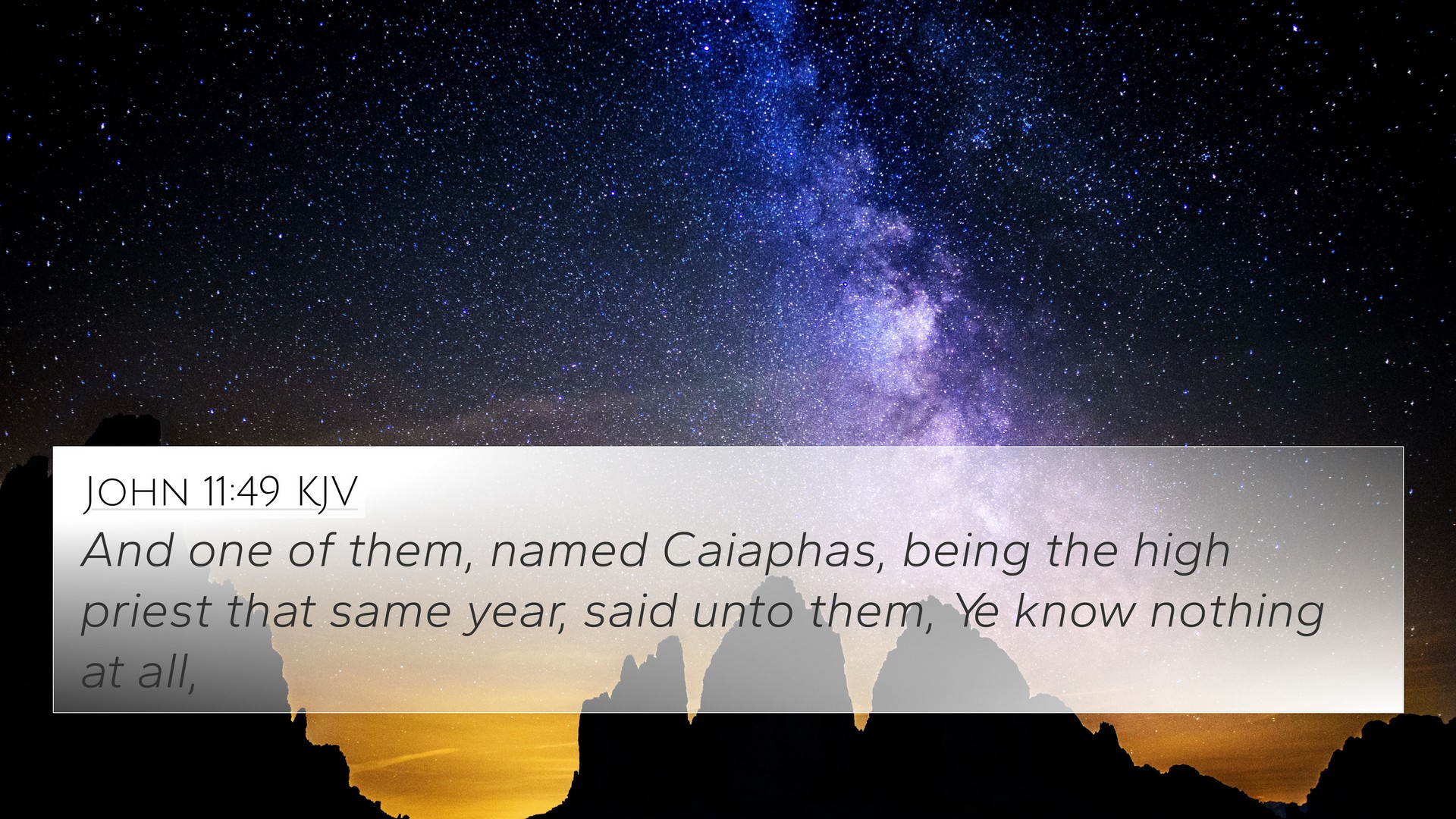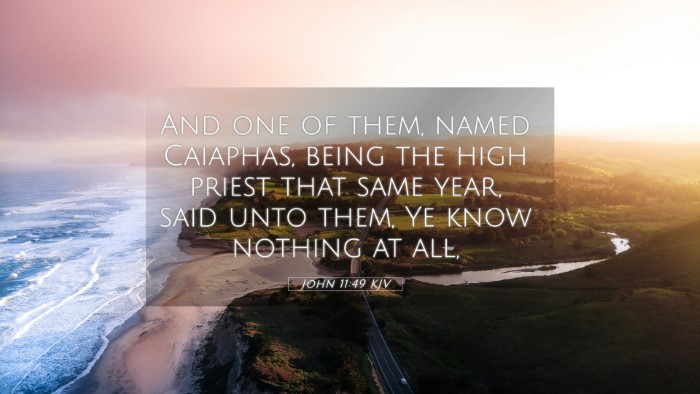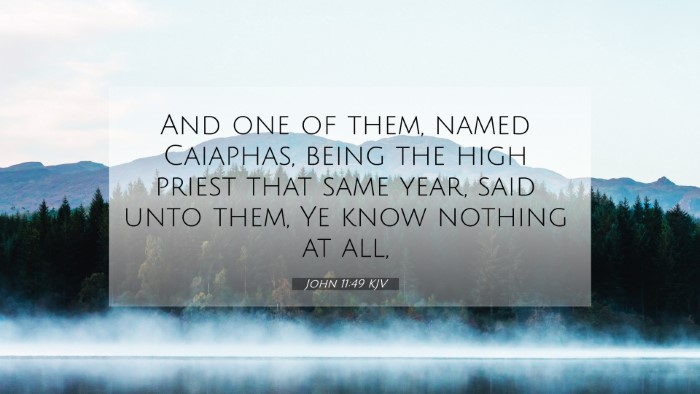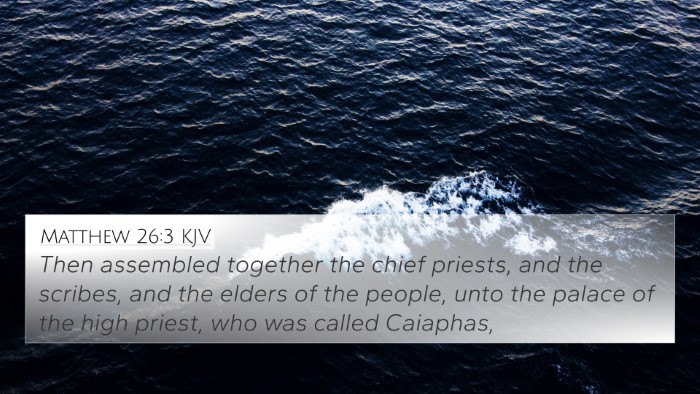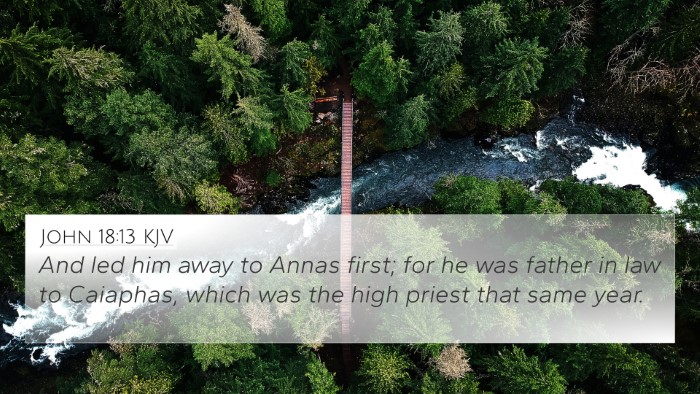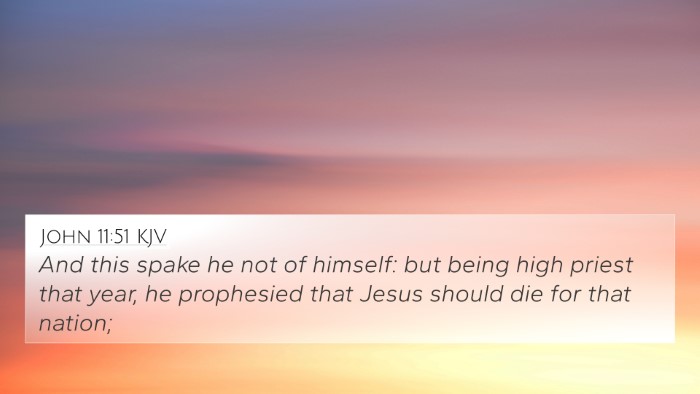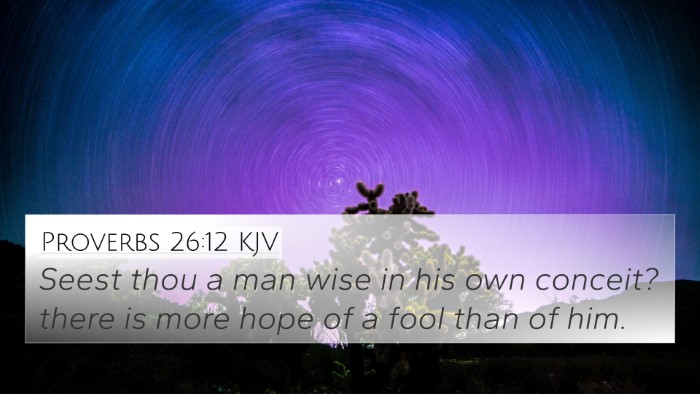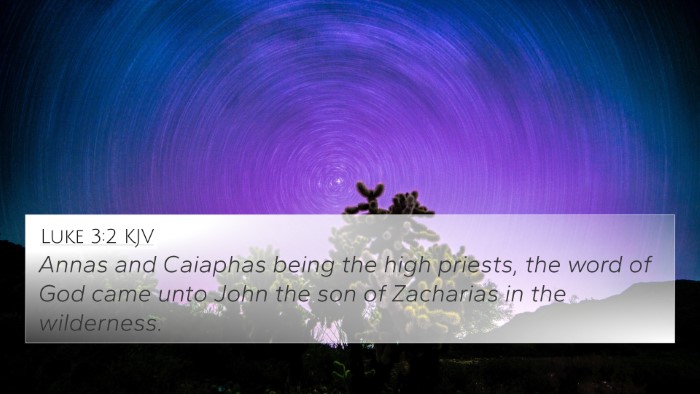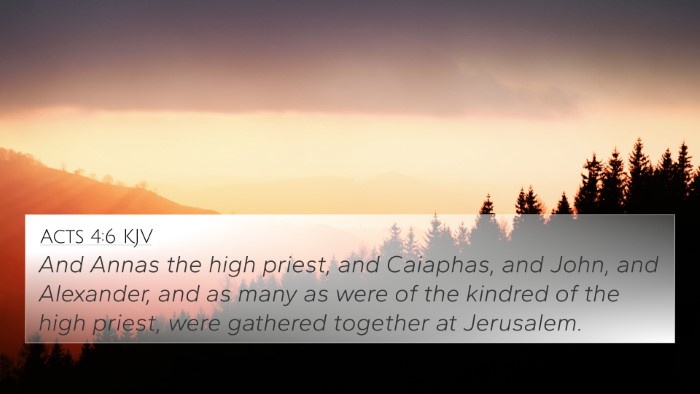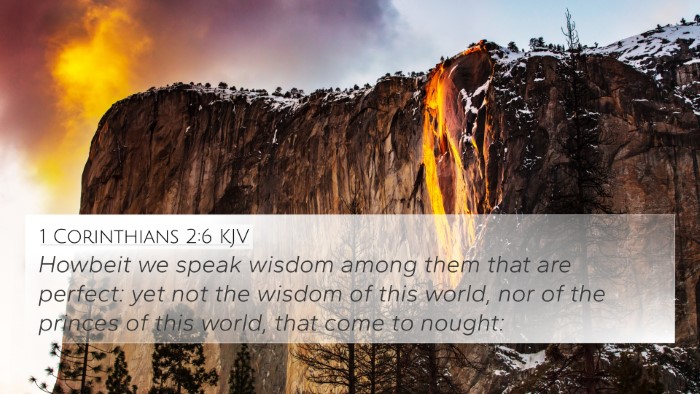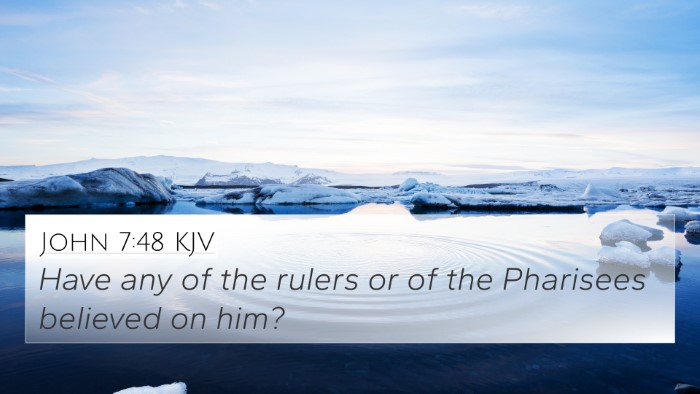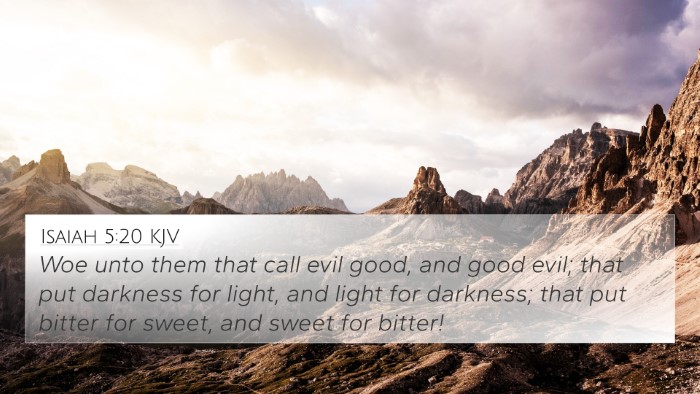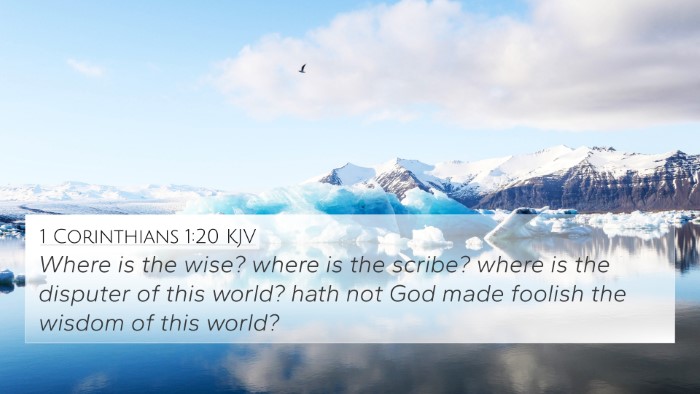Understanding John 11:49
John 11:49 presents a pivotal moment in the Gospel narrative where Caiaphas, the high priest, speaks a profound truth regarding the fate of Jesus. This verse states:
"But one of them, Caiaphas, being the high priest that same year, said unto them, Ye know nothing at all."
This statement emerges in the context of a discussion among the Jewish leaders about how to respond to the growing influence of Jesus. Caiaphas inadvertently prophesies about Jesus' death, reflecting the complexity of divine providence intertwined with human action.
Insights from Public Domain Commentaries
-
Matthew Henry's Commentary: Henry emphasizes the importance of Caiaphas' position and the gravity of his declaration. Caiaphas, though motivated by jealousy and threat to the establishment, articulates a truth: the necessity of Jesus' death for the sake of the nation. Henry highlights that human motives can be aligned with divine purposes, showing that God can use even sinful intentions to fulfill His redemptive plan.
-
Albert Barnes' Notes: Barnes explores the political dynamics at play, pointing out that Caiaphas recognized that the Romans would not tolerate unrest in Jerusalem. His pragmatic approach reflects the Jewish leaders' concern for maintaining control and appeasing Roman authority. Barnes notes that this illustrates a recurring theme in scripture – the tension between divine sovereignty and human agency.
-
Adam Clarke's Commentary: Clarke delves into the historical backdrop, suggesting that Caiaphas' assertion is a foreshadowing of the sacrificial role that Jesus would play. While Caiaphas speaks from a place of fear, there is an underlying acknowledgment of the God's overarching plan for salvation, which would come through Christ's death. Clarke emphasizes the irony that the very actions taken against Jesus were necessary for the fulfillment of prophecy.
Bible Verse Cross-References
John 11:49 can be cross-referenced with several other scriptural passages that enrich its meaning:
- Matthew 26:3-4 - This passage discusses the plot of the chief priests and elders to arrest Jesus, set against the backdrop of Caiaphas' leadership.
- John 11:50 - Directly following 11:49, it confirms Caiaphas' prophetic statement about Jesus dying for the nation.
- Isaiah 53:5 - A prophetic text about the suffering servant, paralleling the sacrificial role of Jesus as foretold by Caiaphas.
- Acts 4:27-28 - Highlights the early church's understanding of how the actions against Jesus were predestined, affirming Caiaphas' unwitting role in God's plan.
- 1 Peter 1:20 - This verse emphasizes that Jesus was foreordained to be sacrificed, aligning with Caiaphas' declaration.
- Romans 8:32 - Conveys the depth of God's love exemplified in Jesus' sacrificial death, which stemmed from the plotting of leaders like Caiaphas.
- Hebrews 10:10 - Discusses Christ's sacrifice once for all, echoing themes of sacrifice linked to Caiaphas’ statement.
Thematic Connections
This verse encapsulates key themes in both the Old and New Testaments, including:
- The Prophetic Nature of Leadership: Caiaphas, though not a believer in Christ, serves as a vehicle for God's prophetic message.
- The Necessity of Sacrifice: The concept of sacrificial death as a means for salvation is central to Christian theology.
- Divine Sovereignty vs. Human Action: The interplay between God's plans and human choices can be discerned throughout scripture.
Conclusion
In John 11:49, we see a complex interaction between human authority and divine purpose. Caiaphas’ words, though politically motivated, reveal a profound truth about God's redemptive strategy. The reflections from renowned commentaries highlight the richness of this verse and its connections to broader biblical themes. Through cross-references, we discover how this moment is woven into the fabric of scriptural history, underscoring the importance of understanding the Bible through interconnected themes and divine revelations. These insights facilitate a deeper appreciation of the narrative and its theological implications.
For those interested in tools for Bible cross-referencing and comprehensive Bible study resources, understanding verses like John 11:49 through the lens of multiple scriptures aids in gaining a holistic view of biblical teachings.
